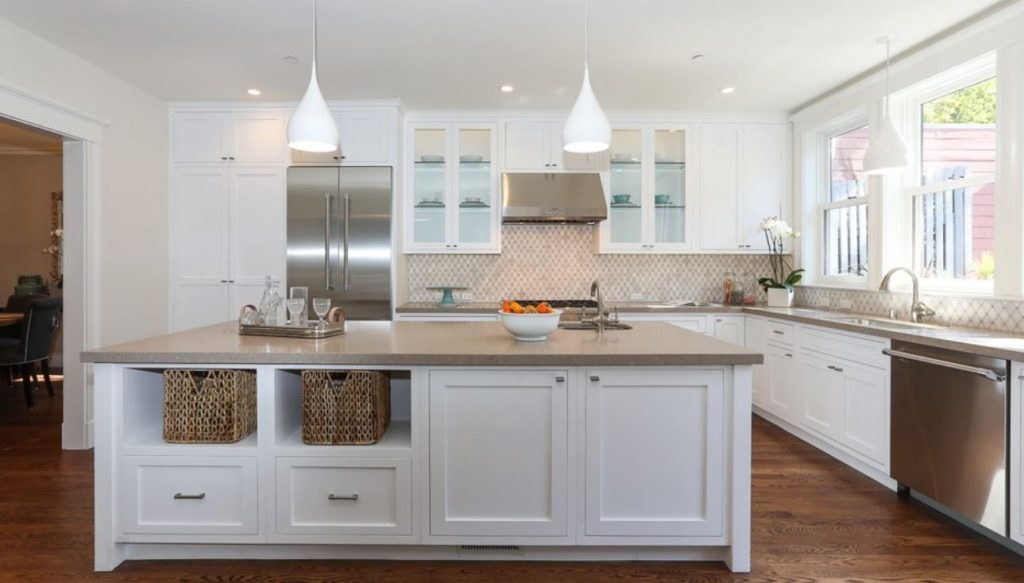Creating a sustainable living space starts with thoughtful choices in every corner of the home. The kitchen, being a high-traffic and functional area, presents a perfect opportunity to incorporate eco-conscious decisions. One significant aspect of kitchen design is the benchtop, which often consumes a lot of materials and resources. In this article, we explore eco-friendly kitchen benchtop options for a greener home that combine style, durability, and environmental responsibility.
Why Choose Eco-Friendly Kitchen Benchtops?
Choosing eco-friendly kitchen benchtops isn’t just a trend; it’s a commitment to reducing your carbon footprint and preserving natural resources. Traditional benchtops, such as those made from granite or synthetic laminates, can have a significant environmental impact due to mining, manufacturing, and transportation. Eco-friendly alternatives often utilize recycled, renewable, or sustainably sourced materials, making them a smart choice for homeowners aiming for sustainability without compromising on aesthetics.
Top Eco-Friendly Kitchen Benchtop Materials
1. Recycled Glass Benchtops
Recycled glass benchtops are made from crushed glass pieces embedded in a resin or cement matrix. These benchtops are strikingly beautiful and unique, offering various colors and textures while reducing landfill waste. They are non-toxic, durable, and easy to maintain—perfect for an eco-conscious kitchen.
2. Bamboo Benchtops
Bamboo is a rapidly renewable resource that grows much faster than traditional hardwoods. Bamboo benchtops are not only sustainable but also incredibly strong and moisture-resistant. Their natural grain adds warmth and elegance, making bamboo a popular choice for eco-friendly kitchen benchtop options for a greener home.
3. Reclaimed Wood
Using reclaimed wood for kitchen benchtops not only adds character and charm but also saves trees from being cut down. This material often comes from old barns, factories, or furniture, giving your kitchen a unique story. Properly treated reclaimed wood can be highly durable and resistant to daily wear and tear.
4. Concrete with Sustainable Additives
Concrete benchtops are durable and customizable, but traditional concrete has a high carbon footprint. Opting for concrete made with fly ash, slag, or other recycled materials reduces its environmental impact. These sustainable concrete benchtops offer a modern, industrial look while aligning with greener home values.
Benefits of Eco-Friendly Kitchen Benchtop Options for a Greener Home
Switching to eco-friendly kitchen benchtops offers numerous benefits beyond reducing environmental harm:
- Durability: Many sustainable materials like bamboo and recycled glass are resistant to stains, scratches, and heat, ensuring longevity.
- Healthier Living: Eco-friendly benchtops avoid toxic chemicals and off-gassing associated with some synthetic surfaces, improving indoor air quality.
- Aesthetic Appeal: These materials bring natural textures and unique patterns that can transform the kitchen into a warm and inviting space.
- Supporting Sustainable Practices: By choosing eco-friendly benchtops, you support industries focused on sustainable harvesting, recycling, and reducing waste.
How to Choose the Right Eco-Friendly Kitchen Benchtop
When selecting the best eco-friendly kitchen benchtop for your home, consider:
- Material sourcing: Look for certifications like FSC (Forest Stewardship Council) for wood or verified recycled content.
- Maintenance requirements: Some materials need more care than others; choose one that fits your lifestyle.
- Budget: While some eco-friendly options can be more affordable, others may require a higher upfront investment but save money in durability and maintenance.
- Design compatibility: Pick a benchtop that complements your kitchen’s style and your personal taste.
Conclusion
Incorporating eco-friendly kitchen benchtop options for a greener home is an impactful way to promote sustainability without sacrificing style or function. Whether you prefer the natural warmth of bamboo, the sparkle of recycled glass, or the industrial edge of sustainable concrete, there are plenty of green options to explore. By making conscious choices in your kitchen design, you contribute to a healthier planet and a more beautiful living space.


